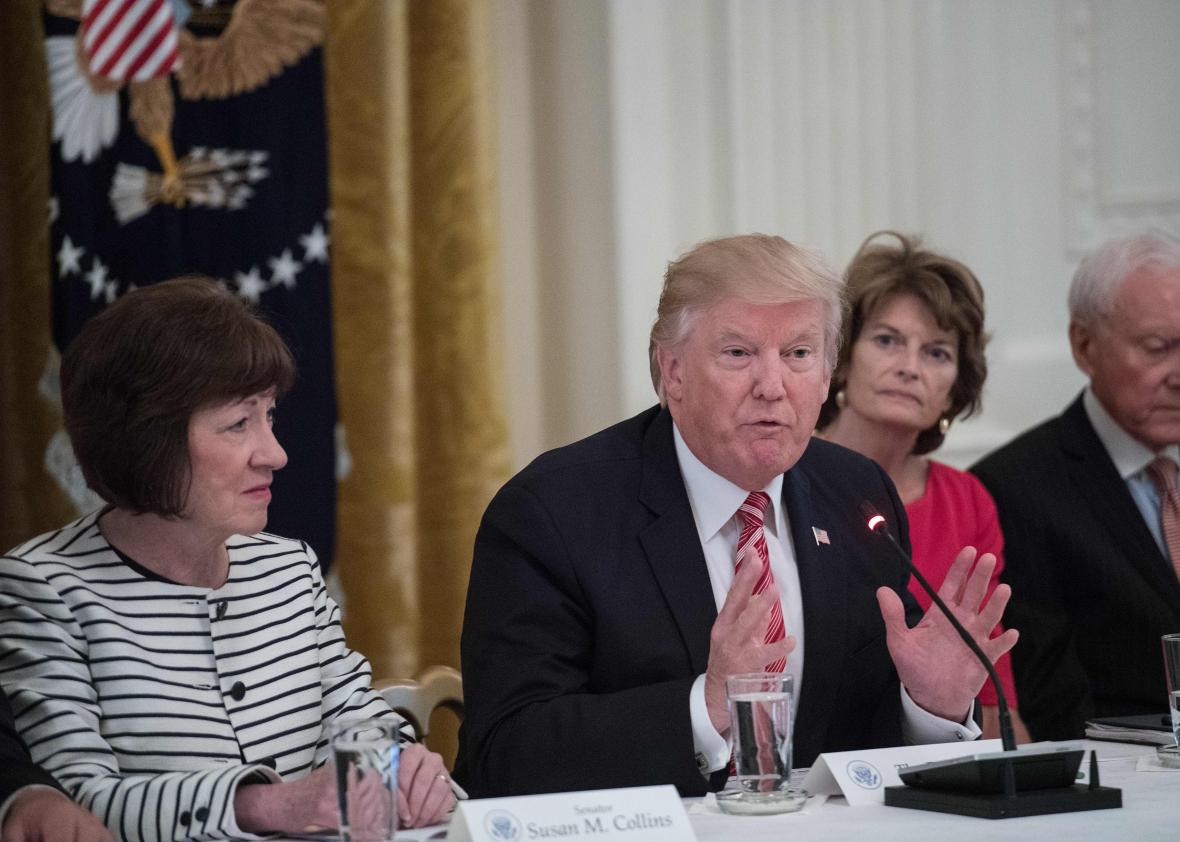Early Friday morning, Sen. John McCain showed up to work with cancer and cast the final, and most dramatic vote, to block his party’s effort to repeal Obamacare. He received a round of applause from Democrats, cheers from protesters outside the capitol, and reportedly said of his vote, “I thought it was the right thing to do.”
But two other Republicans were at least equally—and perhaps more—instrumental in killing the latest, and maybe final version of the Republican plan to repeal Obamacare: Sens. Lisa Murkowski and Susan Collins.
Collins, the moderate four-term Republican from Maine, was one of the first senators to come out against the earliest Senate version of a repeal-and-replace bill. She hasn’t wavered since. Collins was one of two Republican senators to vote “no” on the motion to move Trumpcare in its multiple and sometimes yet-to-be specified incarnations to the Senate floor for debate.
On Twitter, journalist Al Giordano points out that during the 2009 debate on the Affordable Care Act, President Obama and the Democrats did all they could to gain Collins’ support, including extending a personal invitation to the White House to discuss the policy. She ultimately voted “no” but showed greater openness to voting for the measure than she ever did in the entire repeal-and-replace drama. As late as November 2009, one month before Obamacare passed in the Senate, Collins said, “I have ruled out voting for this bill, but I still very much want to vote for a bill and that is why I am continuing to have discussions.”
Contrast that with the Republican effort. Collins—along with all other Republican women—were excluded from the working group that designed the initial version of the Senate bill. Earlier this week, Rep. Blake Farenthold said he’d want to “duel” her if she weren’t a woman.
The second Republican to oppose the final “skinny repeal” measure was Alaska’s Lisa Murkowski, who along with Collins was the only other Republican to oppose the motion to proceed and was also threatened by a male colleague from the other chamber in the days leading up to the vote.
Despite being left out of the discussions to craft the bill, Murkowski had seemed much more open to voting for some version of repeal and replace than Collins. Majority Leader Mitch McConnell even added Alaska-specific sweeteners to the bigger repeal-and-replace package in order to try to win her over.
It ultimately didn’t work. Nor did bullying from President Donald Trump and his Secretary of the Interior Ryan Zinke, who reportedly threatened her state’s road projects, drilling rights, and other issues. In response, Murkowski used her powerful perch as the chairwoman of the Committee on Energy and Natural Resources to indefinitely postpone hearings on nominations to the Interior and Energy departments and didn’t budge on Trumpcare. (One possible reason why: Murkowski has already faced a conservative primary backlash in her state and survived, winning a write-in campaign for her Senate seat in 2010 after having lost the primary to a Tea Party candidate.)
Ultimately, McCain swooped in to save the day in dramatic fashion. He deserves the praise he is getting for it. But it was Murkowski and Collins more than anybody that ensured the defeat of Trumpcare, and maybe the survival of Obamacare.
